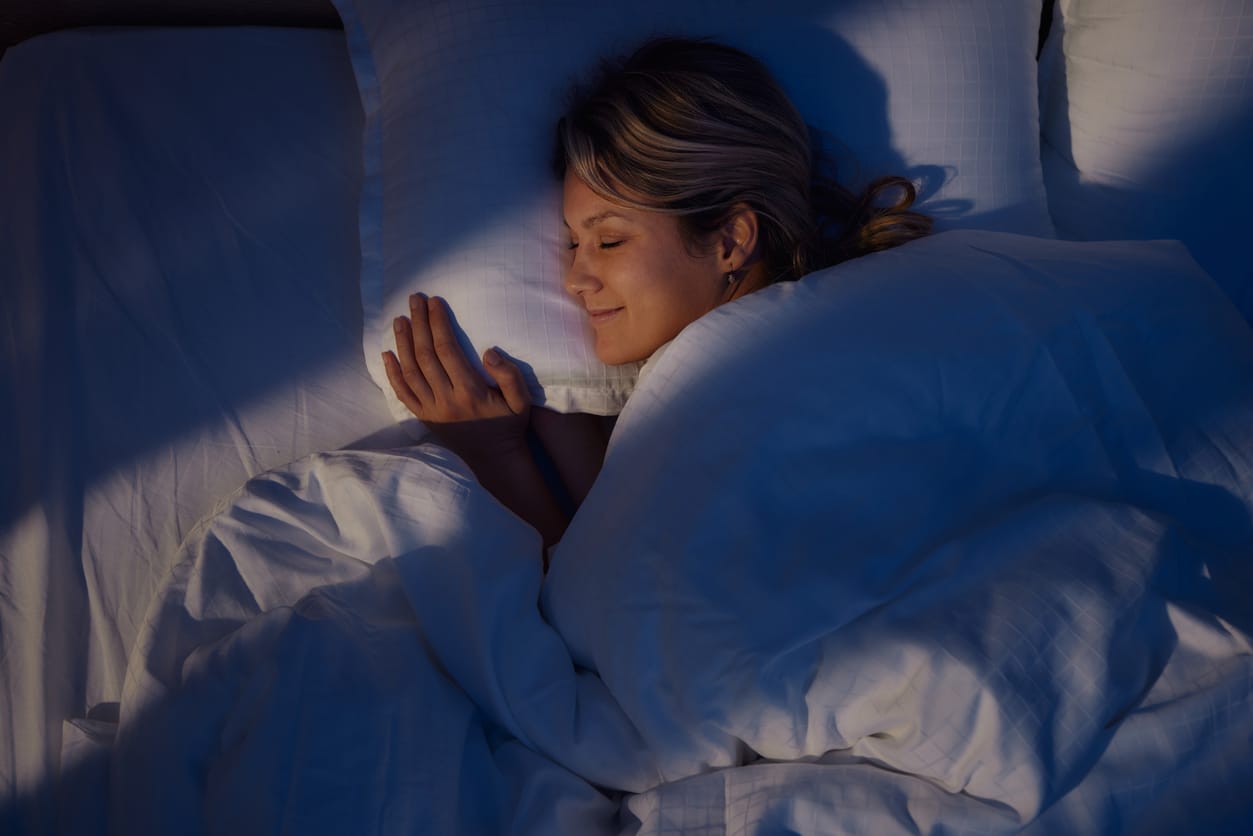Not getting enough sleep can leave a person with dark circles and a cranky disposition, but it may also lead to poor hearing. The average healthy adult needs seven to eight hours of sleep a night. Unfortunately, getting that eight hours can be hard to achieve with work, school or other life stressors.
Let’s examine how hearing may be negatively impacted by poor sleep and what you can do to help you obtain those eight hours a night.
What Is the Connection Between Poor Sleep and Hearing?

Similar to how exhaustion can reduce your ability to think as clearly as your well-rested self can, lack of sleep can impair your hearing. A study comparing the central auditory processing of 30 healthy adults before and after sleep deprivation found lack of sleep to be detrimental to hearing, concluding “Impairment of CAP (central auditory processing) following sleep deprivation may be due to the effects of extended wakefulness on neurobiological functions that are critical for the processing of auditory information, including memory, attention, concentration, reaction time, stimulus perception, and behavioral regulation.”
When you are unable to process auditory information, things like background noise, speech and more may feel far away or difficult to understand. This can be especially difficult for those with hearing loss, as they have to work even harder to understand different sounds. Because of the effects of insufficient sleep, it is crucial to take steps to help you get seven to eight hours a night.
Improving Your Sleep
To help ensure a good night’s sleep, the Mayo Clinic recommends the following six tips for better sleep:
- Maintain a regular sleep schedule. Going to bed at the same time every night helps your body know when to sleep.
- Avoid napping. Limit naps to no more than an hour a day. If possible, try avoiding them altogether and see if it helps you sleep at night.
- Exercise. Daily exercise gives you a boost of energy during the day and better rest at night. Try to fit your workout in earlier rather than later.
- Put away your phone. Avoid using your phone or other devices at night. The blue light emitted from these devices triggers signals in your brain, making it think it is daytime.
- Manage your stress. Don’t let worries or stressors negatively impact your sleep. Try meditating or taking a yoga class at Santa Fe Community Yoga to reduce your stress levels before bed.
- Practice sleep-friendly eating and drinking habits. Try not to eat too close to or far away from bedtime. Eating a couple of hours before will give your body time to digest your food without making you too hungry before you sleep. Additionally, avoid caffeine, alcohol and nicotine in excess, as they can negatively impact your sleep.
For questions about maintaining good hearing health, contact Southwestern Hearing & Balance today to make an appointment with one of our trusted audiologists.
